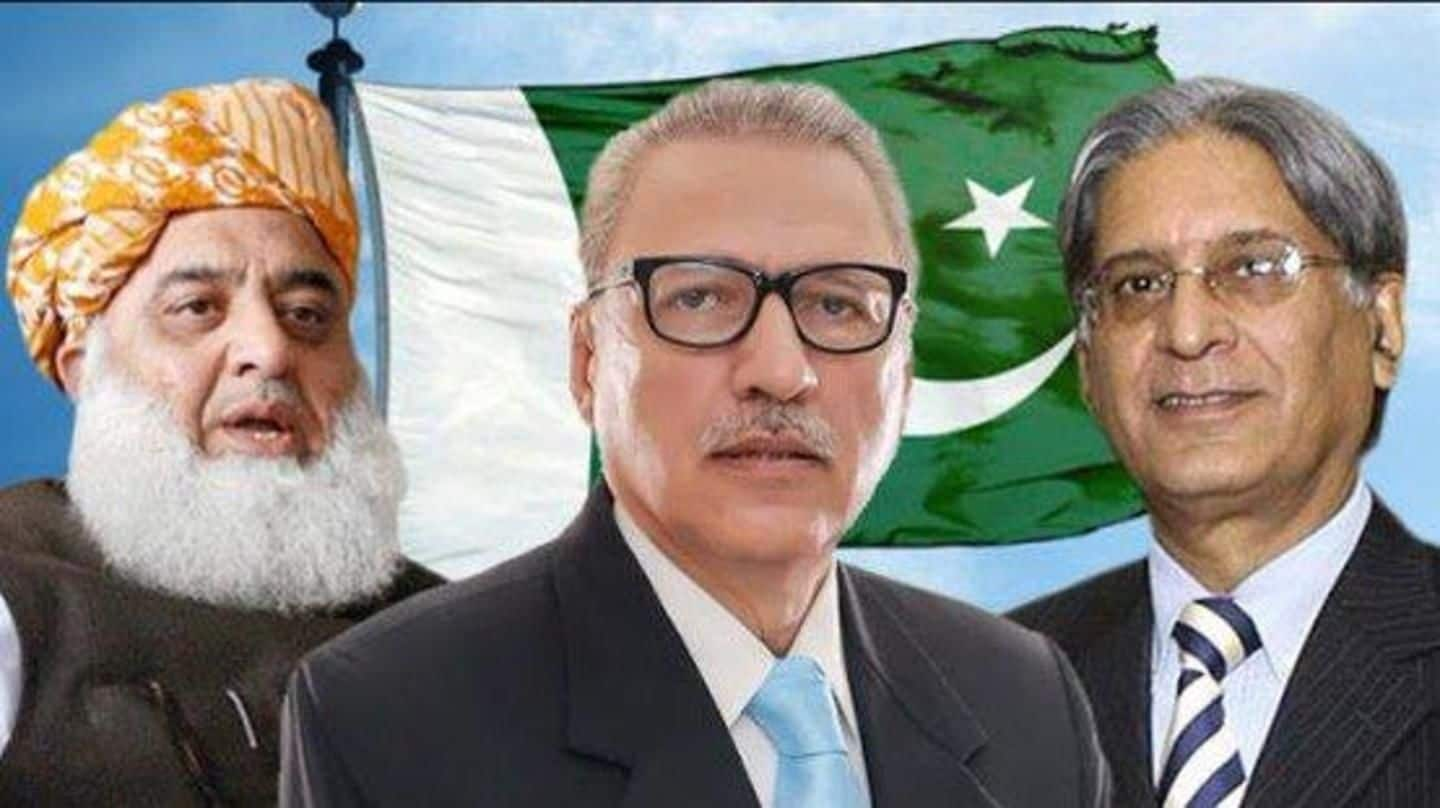
Pakistan: Voting in Presidential election concludes; Alvi likely to win
What's the story
The voting to elect Pakistan's 13th President by lawmakers has concluded. The ruling Pakistan Tehreek-e-Insaf party's candidate Arif Alvi is expected to win after the Opposition parties failed to field a joint candidate. Voting via a secret-ballot started simultaneously in the Senate, the National Assembly and the provincial assemblies in Lahore, Karachi, Peshawar, and Quetta around 10am and concluded at 4pm. Here's more.
Details
Incumbent President Mamnoon Hussain has declined re-election
In Pakistan, the President is considered as a symbol of the federation and head of the state and exercises all powers on the recommendations of the Prime Minister. Outgoing President Mamnoon Hussain's tenure ends on September 8. He had declined for re-election to a second five-year term. The Election Commission of Pakistan (ECP) yesterday completed preparations for the election.
Contenders
Here are the details of contenders from the opposition parties
The Pakistan Peoples Party (PPP) had named Aitzaz Ahsan as its candidate. The third contender, Maulana Fazl ur Rehman, entered the fray after the Pakistan Muslim League-N refused to support Ahsan, who has been a harsh critic of Nawaz Sharif's party. Rehman is the joint candidate of the PML-N, Muttahida Majlis-i-Amal (MMA), Awami National Party (ANP), Pakhtunkhwa Milli Awami Party, and the National Party.
Dr. Arif Alvi
Alvi has strong chances of winning the elections
Since PTI controls the NA and has majority in Khyber-Pakhtunkhwa and Punjab and has the support of the ruling party in Balochistan, its candidate Alvi is in a strong position. A dentist by profession, 69-year-old Alvi is one of PTI's founding members. He served as the party's secretary general from 2006-2013. He won the NA elections from NA-247 (Karachi) during the July 25 polls.
Information
Brief information about presidential elections in Pakistan
The total strength of lawmakers of Senate, NA and four provincial assemblies is 1,174 but as several seats are vacant, their existing strength is 1,121. The presidential elections are held on the basis of proportional representation to give equal representation to the four provinces.
Vote distribution
Details of the distribution of votes in the assemblies
Each lawmaker of Senate (104 members), National Assembly (342), and Balochistan Assembly (65) has one vote. But the vote of Punjab, Sindh, and Khyber-Pakhtunkhwa assemblies is determined on the basis of proportional representation and each assembly has been allotted 65 votes - equal to the total number of members in the assembly with the least members, that is, the Balochistan Assembly.
Information
President elected by Electoral College of 706 votes
Accordingly, 5.70 Punjab parliamentarians makeup 1 vote, 2.58 in Sindh, 1.90 in Khyber Pakhtunkhwa, while lawmakers in Balochistan, the smallest assembly, get one vote each. Thus, according to the law, the President is elected by the Electoral College consisting of 706 votes of all lawmakers.